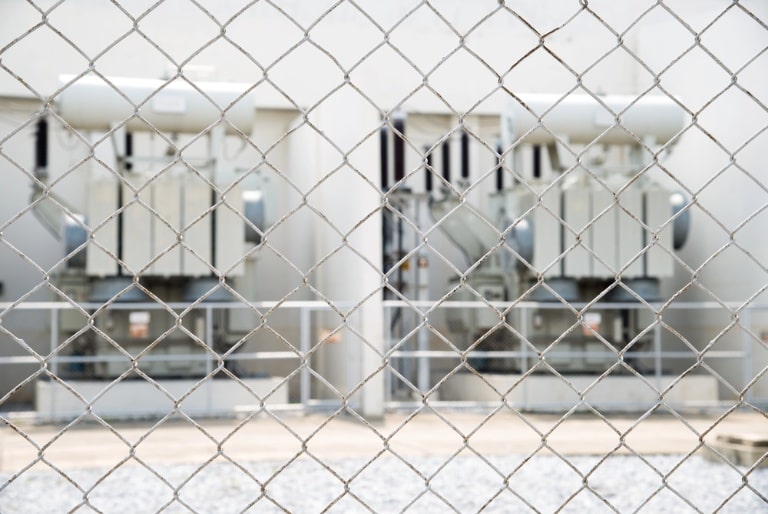Durable and Affordable: Why Chain-Link Fences Are Great for Rainy Regions

When you live in Washington, rain is part of daily life. From the misty mornings in Seattle to the steady drizzles across Snohomish County, the damp climate shapes how homeowners think about outdoor maintenance. Fencing is no exception. If you’re looking for a fence that can handle constant moisture without breaking your budget, chain-link fencing is one of the smartest choices.
In this guide, you’ll learn why chain-link fences perform so well in rainy regions, what makes them durable and long-lasting, and how you can customize them to fit your property.
The Challenge of Fencing in Washington’s Wet Weather
Washington’s consistent rainfall can create problems for certain fence types. Wooden fences, for example, absorb moisture and begin to rot, warp, or grow mold if not properly sealed. Even metal fences can rust over time without the right coating.
When you choose a fence for a rainy climate, you need to consider:
- Moisture resistance: Can the fence handle months of damp weather?
- Maintenance requirements: Will it need frequent sealing, painting, or cleaning?
- Durability: How well does it resist rust, corrosion, and wear?
- Cost-effectiveness: Does it provide long-term value for your investment?
Chain-link fences check all these boxes — and more.
Why Chain-Link Fences Are Ideal for Rainy Regions
1. Weather Resistance
Chain-link fences are made of galvanized steel, which means the metal is coated in zinc to prevent rust. This makes them incredibly resistant to the constant moisture and humidity found throughout Washington.
If you live in areas like Everett, Bellevue, or Tacoma, where rainfall is heavy most of the year, a galvanized chain-link fence can last for decades with minimal upkeep. You can even choose vinyl-coated chain-link for an extra layer of protection against rust and corrosion.
2. Low Maintenance
Unlike wood fences that need staining, sealing, or painting, chain-link fences require almost no maintenance. Occasional cleaning with water and mild soap keeps them looking fresh. This makes them perfect for busy homeowners who want a reliable, worry-free fencing option that holds up well to moisture and moss buildup.
3. Strong and Durable
The structure of a chain-link fence is built to withstand rough weather. The interwoven steel mesh doesn’t warp or crack, and the posts are anchored deep in the ground for stability. This strength ensures that heavy winds, rain, or fallen branches won’t easily damage the fence.
Many fencing contractors in Washington recommend chain-link fences for areas prone to rain and storms because of their proven durability.
4. Affordable and Practical
When it comes to balancing cost and performance, chain-link fences stand out. They are one of the most affordable fencing options on the market, yet they deliver long-term value through durability and minimal maintenance costs.
This makes them ideal for homeowners who want reliable property boundaries without spending thousands on wood or vinyl fencing.
Customizing a Chain-Link Fence for Your Home
Just because chain-link fences are functional doesn’t mean they can’t be attractive. Modern options allow for plenty of customization to enhance curb appeal and privacy.
Here are a few ways to personalize your chain-link fence:
- Vinyl Coating: Choose from colors like black, green, or brown to blend the fence into your landscape.
- Privacy Slats: Insert slats through the mesh to add privacy while still maintaining airflow.
- Decorative Posts or Gates: Add style with custom post caps or ornamental gates.
- Landscaping Integration: Grow vines or shrubs along the fence to create a natural green barrier.
If you’re unsure what design suits your home best, you can reach out to a professional fence installer in Washington who can recommend custom options based on your yard and local conditions.
Chain-Link vs. Other Fence Materials
Let’s see how chain-link compares to other common fencing materials:
| Fence Type | Maintenance | Weather Resistance | Cost | Durability |
| Chain-Link | Very low | Excellent (galvanized/vinyl-coated) | Affordable | High |
| Wood | High (staining, sealing) | Moderate (can rot in moisture) | Medium | Moderate |
| Vinyl | Low | Good | High | High |
| Wrought Iron | Moderate (needs paint to prevent rust) | Fair | Expensive | Very High |
As the table shows, chain-link offers the best balance of affordability, weather resistance, and durability — especially in rainy climates.
Common Uses for Chain-Link Fences
Chain-link fences aren’t just for backyards. Homeowners and businesses across Washington use them for a wide variety of purposes:
- Pet enclosures to keep dogs safe and contained.
- Garden fencing to protect plants from animals.
- Play area boundaries for kids’ safety.
- Perimeter fencing for added security without blocking the view.
- Commercial spaces for cost-effective property protection.
Because they’re versatile and easy to install, chain-link fences are one of the most widely used fencing types in the Pacific Northwest.
How to Maintain a Chain-Link Fence in Rainy Weather
Although chain-link fences are low-maintenance, a little care can extend their lifespan even more.
Here are a few easy maintenance tips:
- Rinse the fence occasionally to remove dirt, moss, or debris.
- Check for loose fittings or posts after strong winds.
- Apply a rust-resistant spray to areas where the coating has worn off.
- Keep plants trimmed back so they don’t trap moisture against the metal.
With these simple steps, your chain-link fence can last 20 years or more — even in the wettest parts of Washington.
Final Thoughts
Rainy weather doesn’t have to mean endless fence repairs. A chain-link fence offers the perfect mix of durability, affordability, and weather resistance, making it an excellent choice for homeowners throughout Washington State.
If you’re ready to protect your yard with a fence built to withstand the Pacific Northwest’s damp climate, consider consulting a local chain-link fencing in Washington. They can help you choose the best materials, coatings, and designs for your property — ensuring your fence stays strong and stylish for years to come.




